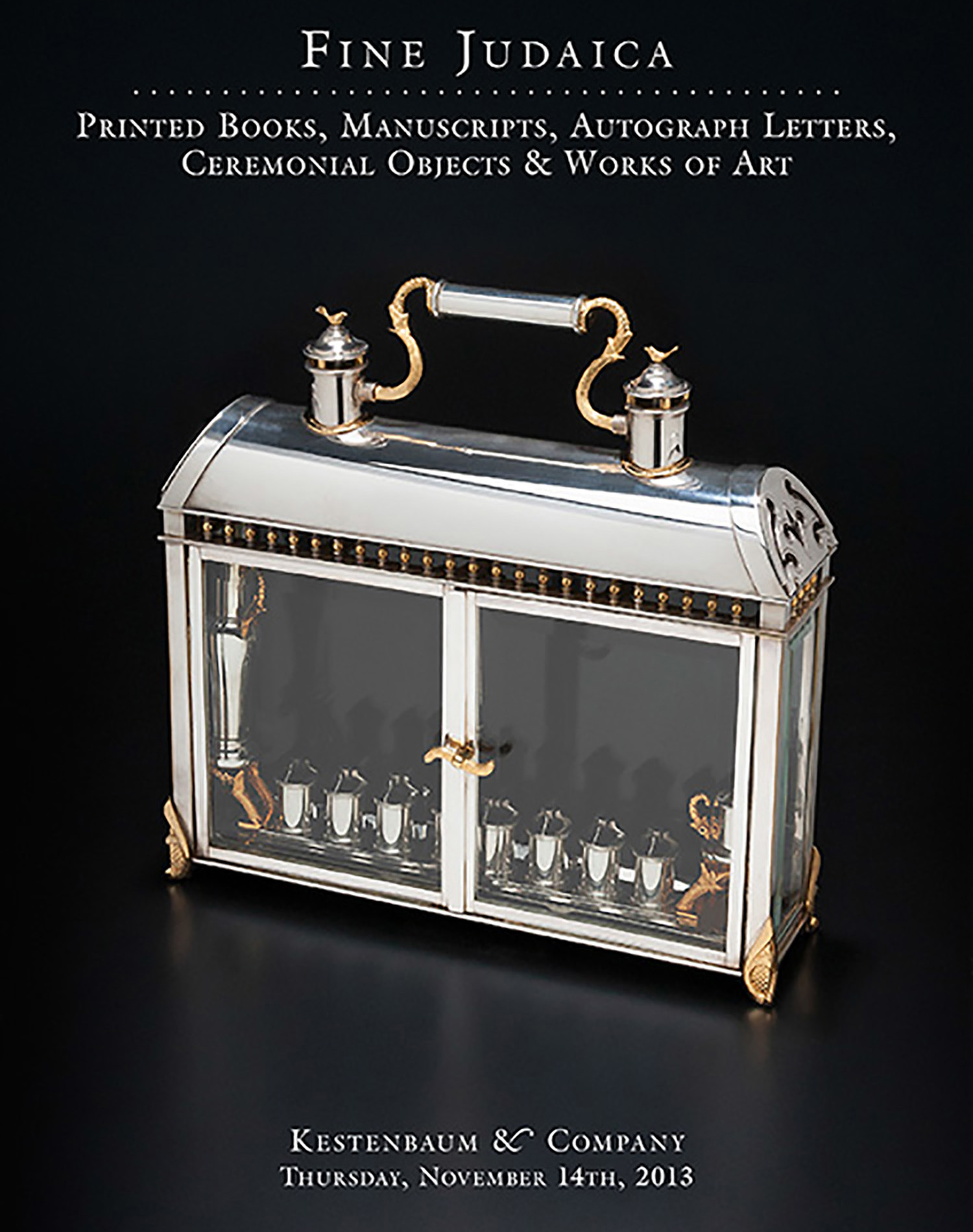Israelitische Volks-Bibliothek. Deutsch-Amerikanische Skizzen für jüdische Auswanderer und Nichtauswander.

AUCTION 60 |
Thursday, November 14th,
2013 at 1:00
Fine Judaica: Printed Books, Manuscripts, Autograph Letters, Graphic Art and Ceremonial Objects
Lot 28
(AMERICAN JUDAICA).
Israelitische Volks-Bibliothek. Deutsch-Amerikanische Skizzen für jüdische Auswanderer und Nichtauswander.
Leipzig: Oskar Leiner 1857
Est: $1,500 - $2,000
Anonymous report of the experiences of a German Jew who arrived in America in 1853. Provides unusual data about New York Jewry as well as a stimulating, critical - albeit in some parts prejudiced - view of it.
The author begins by describing his journey from Europe to America (along with 12 other Jews) and although does not specifically explain why he left Germany, he looked to America for the religious freedom missing from his homeland. His writing style indicates an educated upbringing, both yeshiva-trained and secular. His religious orientation may be characterized as neo-Orthodox, welcoming reform but not if motivated simply to imitate American Christian society. He is most critical of American congregational formats so far developed and worries about the neglect of Jewish education. He is brutally critical of New York’s Temple Emanu-El as well as of the B’nai B’rith. He surveys the position of women, rabbinic leadership and religious piety.
The author provides an in-depth analysis of of She’arith Israel, the oldest and most prominent Sephardi Jewish congregation in New York, as well as a description Mordecai M. Noah, one of the most important members of the congregation. He criticizes the plethora of other synagogues that have been built “no matter the financial sacrifice, no real Jewish spirit is involved” for they seem to exist only in order to make money. He reserves his harshest criticism for the wealthy who are uncharitable. He is kindly disposed towards the Polish Orthodox Jewish congregations and most positively inclined towards Dutch and English Orthodox congregation. He explains their Orthodoxy by saying that Jews from countries without persecution retained the forms of Judaism after emigrating, while persecuted emigrants, associating these forms with hard and ugly times, eliminated them. He notes with discomfort the American atmosphere of materialism, but ultimately enjoys America for its democratic and equal treatment of all individuals. He realizes that the difference between the German and American culture is so severe that some Jews either avoid the American reality completely or surrender to it without qualifications.
See G. Greenberg, A German-Jewish Immigrant’s Perception of America, 1853-1854 in: American Jewish Historical Quarterly. LXVII, 4 (June,1978) pp. 307-41.
